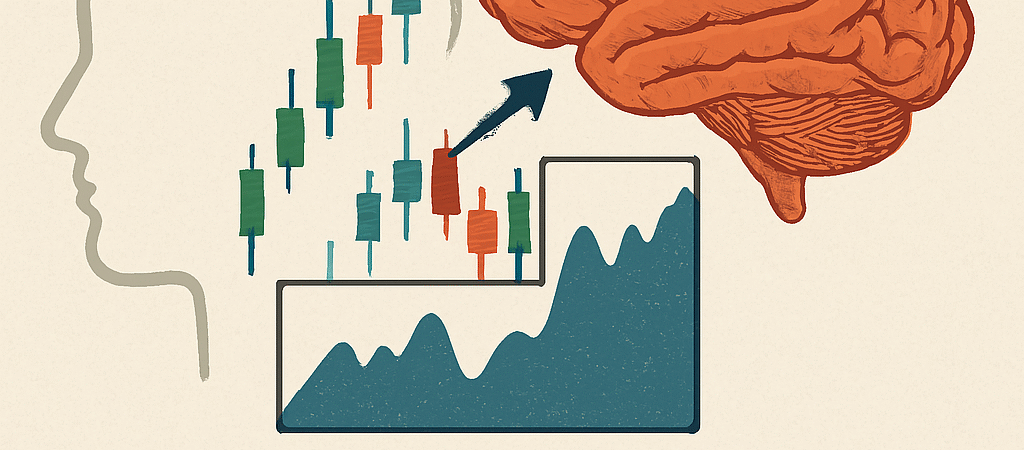Have you ever felt an intense emotion after winning or unexpectedly receiving money?
A wave of euphoria from seeing your bank account grow, receiving a substantial payment, or making a profit on an investment?
You’re not alone.
In fact, your brain reacts to money just like it would to a powerful drug.
This isn’t a metaphor—it’s science.
Your brain is still the main character.
In recent years, neuroeconomics—a discipline that combines neuroscience, psychology, and economics—has revealed surprising insights into how the human brain processes the value of money, makes financial decisions, and why we’re sometimes irrationally drawn to it.
This article explores a fascinating and little-known truth: money activates the same neural circuits as addictive drugs.
And this has profound implications for our daily lives, our investment decisions… and our mental health.
🧠 The Nucleus Accumbens: The Zone of Financial Pleasure
It all starts in a small but powerful region of the brain called the nucleus accumbens, located in the limbic system.
This area is crucial for the perception of pleasure, motivation, and reward.
It lights up when we eat something delicious, listen to music we love… and, according to several studies, when we win money.
In research led by neuroscientist Brian Knutson at Stanford University, participants were shown images of money while undergoing functional MRI scans.
The result? The nucleus accumbens lit up intensely, as if exposed to an addictive substance.
Even more surprisingly, the anticipation of receiving money was more stimulating than actually receiving it.
Just the thought of earning money activates the brain with an intensity similar to the expectation of a drug.
💸 Dopamine and Addiction: Why Can’t We Stop Thinking About Money?
When something gives us pleasure, our brain releases dopamine—a neurotransmitter essential for learning about rewards.
Drugs like cocaine, heroin, or amphetamines act directly on dopamine, increasing its levels and generating euphoric sensations.
Well, money also triggers dopamine release.
This doesn’t mean money is a “drug” in the strict sense, but it activates the same reward systems as drugs.
That’s why some people can develop addictions to financial risk, gambling, or speculative investments—just like substance addiction.
A study published in Neuron showed that when people win small amounts of money in a controlled gambling game, their brains release dopamine just as they would during intense emotional or sensory rewards.
🌀 When Money Becomes an Irrational Stimulus
From an evolutionary perspective, the human brain wasn’t designed to handle money, because money—as we know it—is a very recent invention in our history.
We’re wired to seek immediate rewards: food, safety, affection.
But money is an abstract symbol of deferred value.
And when we turn it into an emotional goal, we assign it a meaning that can defy logic.
For example, behavioral psychology studies have shown that many people prefer to earn €100 if their friends earn €50, rather than €150 if their friends earn €200.
The perception of money’s value changes based on emotional and social context—not just its purchasing power.
⚠️ The Brain’s Traps of Easy Money
One of the most serious problems stemming from this dopaminergic relationship with money is that we become vulnerable to promises of quick or easy cash—like gambling, cryptocurrencies, or dubious investment schemes.
A classic experiment from the University of Iowa revealed that participants making financial decisions under emotional pressure tended to choose risky options with immediate gratification, ignoring long-term negative consequences.
Their brains prioritized “immediate reward,” just like in addictive behaviors.
In fact, the brain’s reward system can override common sense when the expectation of making money is very high.
In contexts like trading, it’s easy to fall into patterns of overconfidence, impulsivity, and irrational decisions.
📈 Wall Street and the Science Behind Euphoria
In the financial world, some have long recognized this addiction.
A famous example is Jordan Belfort, the stockbroker who inspired the film The Wolf of Wall Street.
In his memoirs, Belfort admits that the adrenaline rush of earning millions in a day made him more addicted than any drug he took (and he took plenty).
And it’s no coincidence.
A study in the Journal of Behavioral Addictions found that high-risk financial traders showed brain patterns similar to compulsive gamblers—especially when they profited after a series of losses.
Not all of us are traders or brokers, but we all have an emotional relationship with money, whether we like it or not.
And that relationship can be healthy… or destructive.
Understanding how our brain interacts with money is the first step toward making better decisions, avoiding psychological traps, and managing our finances more mindfully.
Knowing that money activates reward circuits that create addiction helps us stay vigilant. Because if we don’t control it, money can control us.
For traders, understanding that money activates brain regions linked to addiction is crucial for managing risk and avoiding impulsive decisions.
Every winning trade can generate a chemical euphoria that pushes you to trade again without objective analysis—like a gambler who keeps betting after a win.
The lesson is clear: don’t trade out of euphoria or frustration.
Use clear strategies, manage your emotions, and remember that your brain is wired to seek rewards—not necessarily to maximize profits.
Recognizing neurological biases can make the difference between a casual trader and a consistent one.
